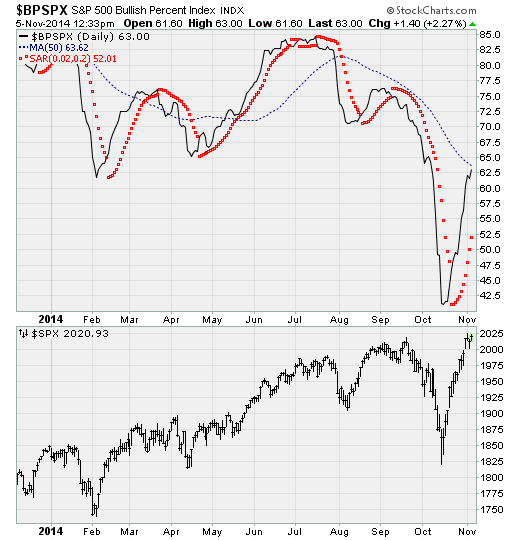How will GOP control of Congress affect stocks?
Stocks rose on Wednesday a day after Republicans gained control of the Senate in midterm elections, pushing the buoyant Dow Jones industrial average deeper into record terrain.
As of 2:25 p.m. Eastern Time, the Dow was up 76 points, or 0.4 percent, to 17,459. The S&P 500 also inched up, while the Nasdaq composite index was down slightly.
Historically, stocks tend to do well in the months surrounding the second midterm of a two-term president. Moreover, the holiday season is the best three-month stretch for the market during the year. But this is no ordinary market, and this has been no ordinary election.
So far, the chatter is that the parties could dig in on issues like immigration reform, which could lead Republican hardliners into unpopular strategies like shutting the government down, or even pursuing impeachment charges. Republicans would also likely see President Obama veto even small changes to the Affordable Care Act.
Without much Republicans and Democrats can agree on, the next two years could bring considerable posturing ahead of the 2016 presidential elections. That is likely to prove disappointing to the two-thirds of Americans who feel the country is on the wrong track, according to the latest CBS News poll.
As investors survey the new political landscape, this dynamic may start to appear as early this afternoon, when Obama holds the customary post-election press conference. It's hard to see him being receptive of Republican proposals. Those are likely to include rolling back and modifying elements of Obamacare; expanding the domestic energy industry; broadening the fight against ISIS and Syria; stopping flights from Ebola-affected areas in Africa; reforming the tax code; and cutting regulations, especially in areas like financial services and carbon emissions.
It's equally hard to see Republicans being receptive of Obama's interest in areas like climate change and amnesty for illegal immigrants.
It's worth remembering that the worst scares that the market has suffered in this cycle -- aside from the eurozone crisis -- have come from partisan showdowns in Washington. The biggest was the August 2011 credit downgrade from Standard & Poor's on frustration with a lack of political progress on the long-term drivers of the national debt and deficit. This issue will once again be in focus as the current budget resolution expires on December 11.
Without a new deal, the government would face another October 2013-style shutdown. The debt ceiling returns as an issue in March. All of this should soon start weighing on the minds of investors.
This comes in the context of some worrisome breadth measures as the market flirts with new record highs. The rebound out of the October lows was impressive in terms of price action. But as the chart above shows, it's been sorely lacking in broad participation. You can see this in the way the percentage of S&P 500 stocks in uptrends stands at just 63 percent, down from 75 percent in September and 85 percent back in July. That suggets stocks are more vulnerable than they appear.
